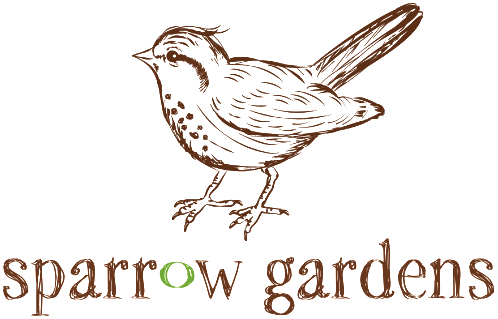the two sides of forever
"I have great faith in a seed."
— Henry David Thoreau
Running across this image of a vintage pinks (dianthus) seed package commemorated on a "forever" postage stamp touched on two of my most prominent thoughts this winter (ok, besides wondering if another snow day at school was going to be declared!). First, that the cold and snow seemed like it would last forever and that spring was but a fleeting idea that happened in other years and would be skipped right over this time. Second, that most of us don't realize how many plant varieties we have lost through the generations, with no one saving the seeds and cultivating them—we naively assume they will be around forever. I didn't realize the extent of the loss until I began reading The Seed Underground: A Growing Revolution to Save Food by Janisse Ray one snowy afternoon. This eye-opening book is the personal story of Ray's journey as a gardener, homesteader, and ultimately an important saver of heritage seeds.
She opens the book with the following passage:
"As the price of gold and silver rises and the value of paper money nose-dives, the most priceless commodity we humans own goes largely unnoticed. When presented with this capital, most people have no place for it, do not know what to do with it, and do not value it. Thus it winds up in the trash. Yet far beyond Wall Street, beyond the supersized stores of a disappearing industrial world now past its heyday, these precious goods travel from hand to hand in one of the most interesting economies in the world."
She is of course referring to seeds, and how precious yet ignored a commodity they are in today's modern world. Ray explains how corporations are utilizing this ignorance as an opportunity to buy up seed rights—even to indigenous varieties cultivated by the Native Americans—because the one who owns the seeds controls the food, and can modify the food however they wish. This is why growing your own food and saving the seeds is so important. I will never again walk past a seed rack without appreciating the effort put in to save those seeds (truth be told, I can't really ever walk past a seed rack without picking up a few packets!).
In addition to national groups such as the Seed Savers Exchange, there are local groups which promote seed saving such as the Cape Cod Food Hub. They've opened seed libraries at Sturgis Library in Barnstable Village and at Brooks Free Library in Harwich. The seeds are donated by Seed Savers Exchange along with varieties grown here on the Cape and are free to all members of the community.
So as I wait with bated breath for spring to arrive in just seven days I am gathering up my seed packets—and purchasing a few more—to plant in the warm soil as generations before me have done, and hopefully generations more to come.
Some useful resources for seeds and seed saving:
Seed to Seed: Seed Saving and Growing Techniques for Vegetable Gardens by Suzanne Ashworth
Non GMO seeds:
Territorial Seeds catalog
High Mowing Seeds catalog
Baker Creek Heirloom Seeds catalog
RH Shumway Seed catalog
photo: Oldrich
